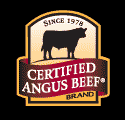Tips to Combat Heat-related Illnesses
The risk of heat-related problems increases with age.
Older people can face risks related to hot weather. As people age, their bodies lose some ability to adapt to heat. They may have medical conditions that are worsened by heat. And their medications could reduce their ability to respond to heat.
The National Institute on Aging (NIA), part of the National Institutes of Health (NIH), has some advice for helping older people avoid heat-related illnesses, known collectively as hyperthermia.
Hyperthermia occurs when the body overheats. Conditions involving hyperthermia have different names, including heat stroke, heat fatigue, heat syncope (lightheadedness or fainting in the heat), heat cramps and heat exhaustion.
Health-related factors that may increase the risk of hyperthermia include:
- Pre-existing diseases such as congestive heart failure, diabetes and chronic obstructive pulmonary disease
- Decreased ability to move around
- Dementia or cognitive impairment
- Certain medications that may cause dehydration or that may affect the responses to heat by the heart, blood vessels or sweat glands.
- Being substantially overweight
- Drinking alcoholic beverages
- Being dehydrated
- Age-related changes in the skin, such as decreased functioning of small blood vessels and sweat glands
Lifestyle factors that can also increase the risk of hyperthermia include hot living quarters, lack of transportation, overdressing, visiting overcrowded places, and not understanding how to respond to weather conditions. Older people, particularly those at special risk, should pay attention to any air pollution alert in effect. People without fans or air conditioners should go to shopping malls, movie theaters, libraries or other places with air conditioning. In addition, they can visit cooling centers, which are often provided by government agencies, religious groups and social service organizations in many communities.
Heat stroke is an advanced form of hyperthermia. It occurs when the body is overwhelmed by heat and unable to control its temperature. In heat stroke, the body temperature is at least 104° F. Someone with heat stroke may have a strong rapid pulse; lack of sweating; dry, flushed skin; faintness; staggering; and mental status changes such as confusion, combativeness, disorientation or even coma. Seek immediate medical attention for a person with any of these symptoms, especially an older adult.
If you suspect that someone is suffering from a heat-related illness:
- Move them into an air-conditioned or other cool place.
- Urge them to lie down and rest.
- Remove or loosen tight-fitting or heavy clothing.
- Encourage them to drink water or juices if they are able to drink without choking, but avoid alcohol and caffeine.
- Apply cold water, ice packs or cold wet cloths to the skin.
- Get medical assistance as soon as possible.
The Low Income Home Energy Assistance Program (LIHEAP) within the Administration for Children and Families in the U.S. Department of Health and Human Services helps eligible households pay for home cooling and heating costs. Individuals interested in applying for assistance should contact their local or state LIHEAP agency. For more information, go to www.acf.hhs.gov/programs/ocs/liheap/ or www.acf.hhs.gov/programs/ocs/liheap/brochure/brochure.html.
For a free copy of the NIA's AgePage on hyperthermia in English or in Spanish, contact the NIA Information Center at 1-800-222-2225 or go to www.niapublications.org/agepages/hyperther.asp, or www.niapublications.org/agepages/hyperther-sp.asp for the Spanish-language version.
The NIA leads the federal government effort conducting and supporting research on aging and the health and well-being of older people. The Institute's broad scientific program seeks to understand the nature of aging and to extend the healthy, active years of life. For more information on research, aging and health, go to www.nia.nih.gov.

[Click here to go to the top of the page.]








